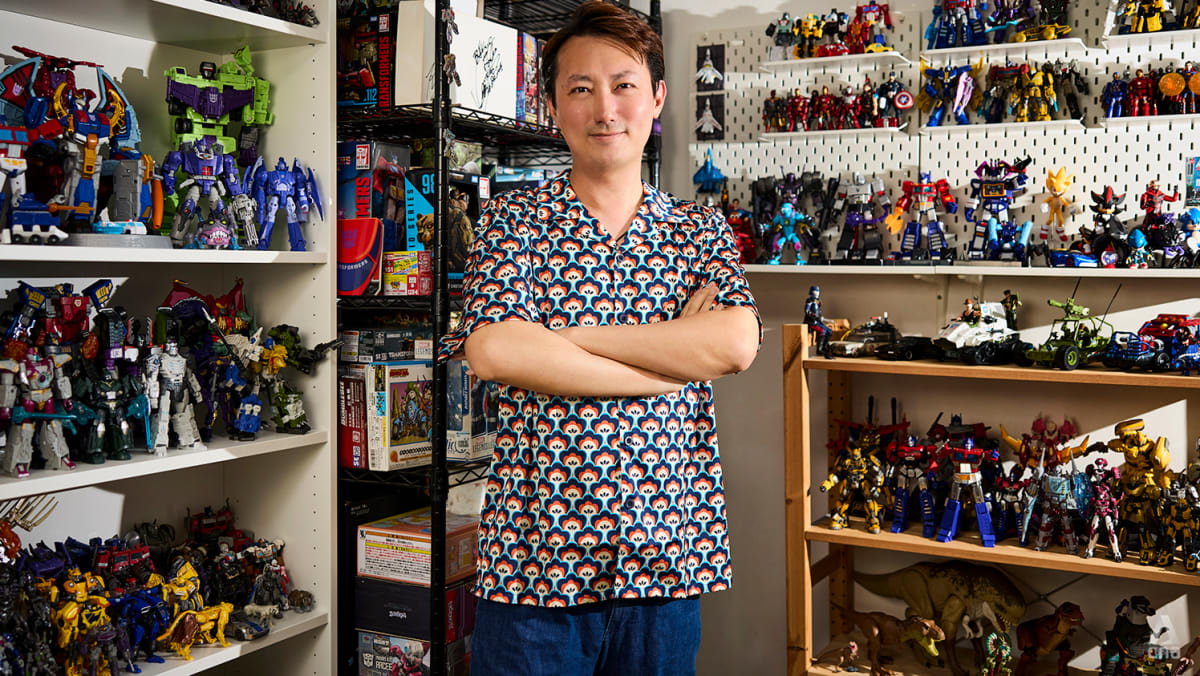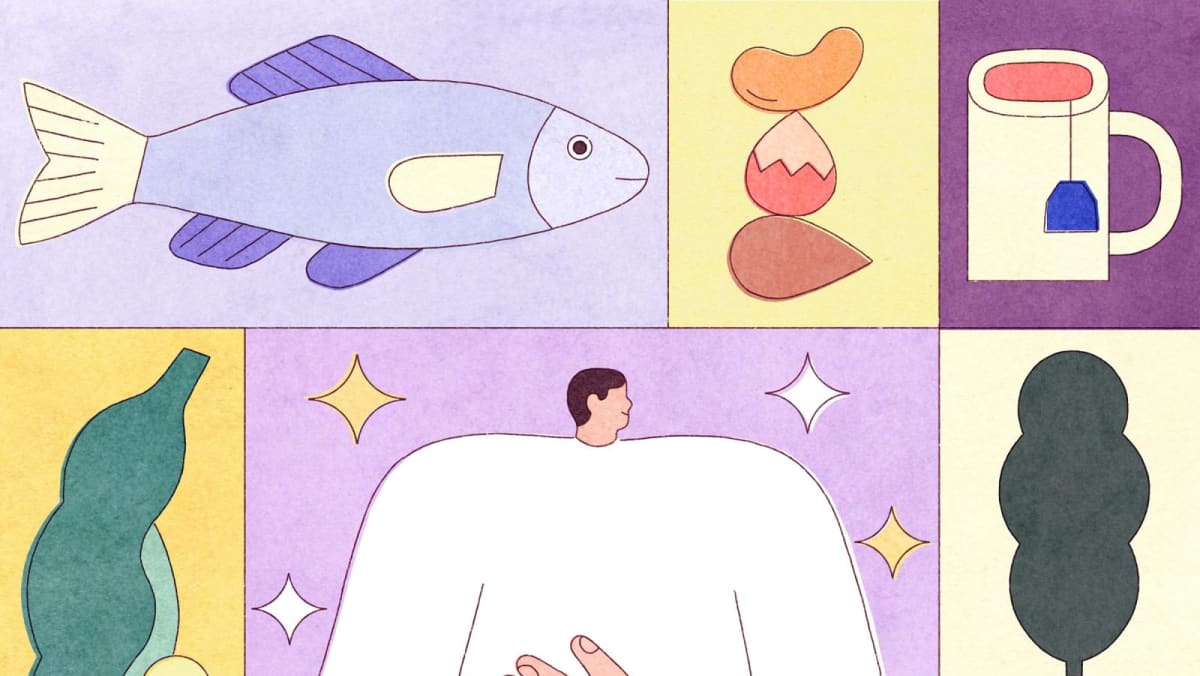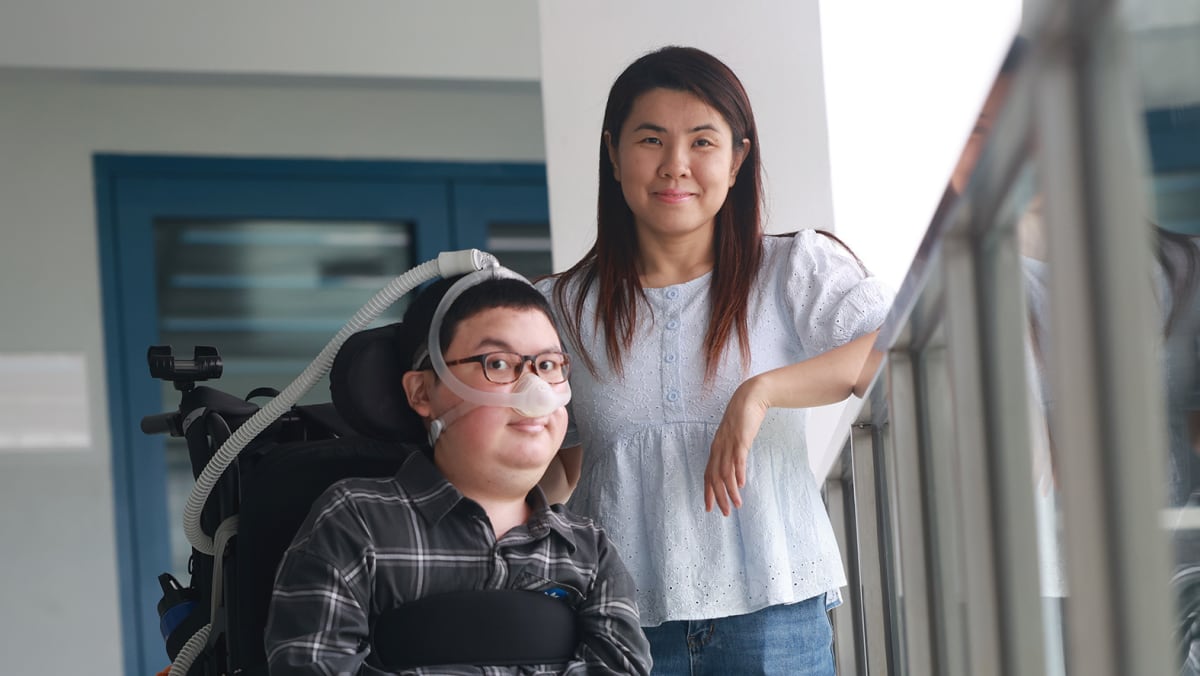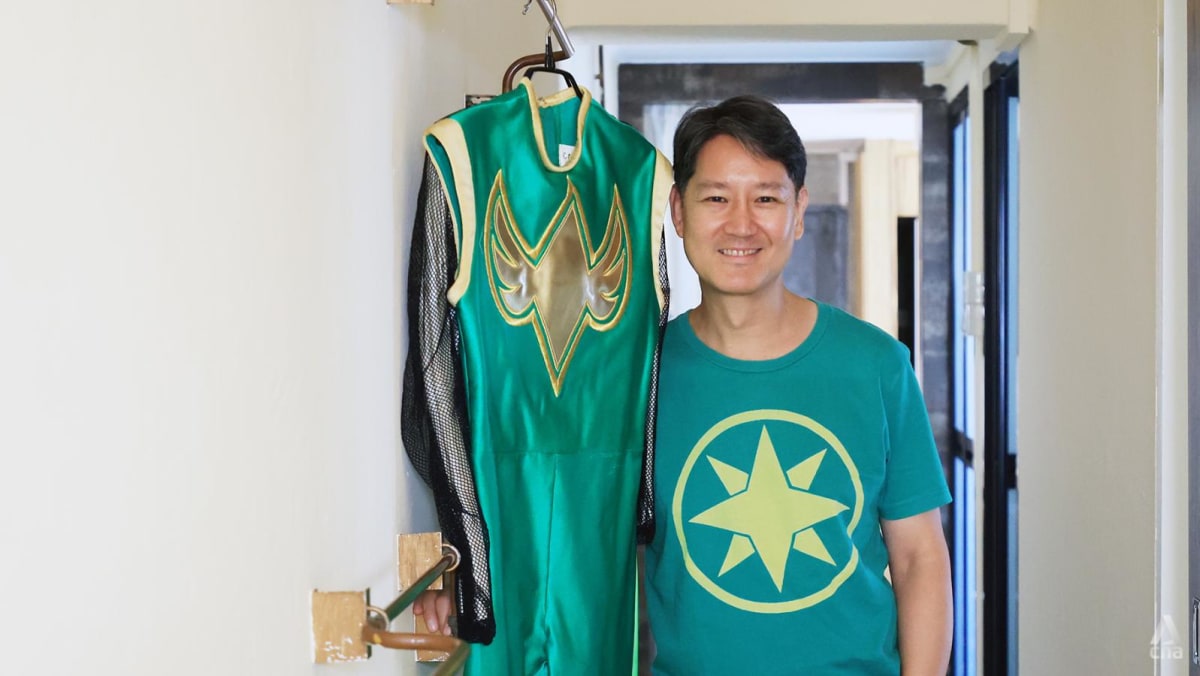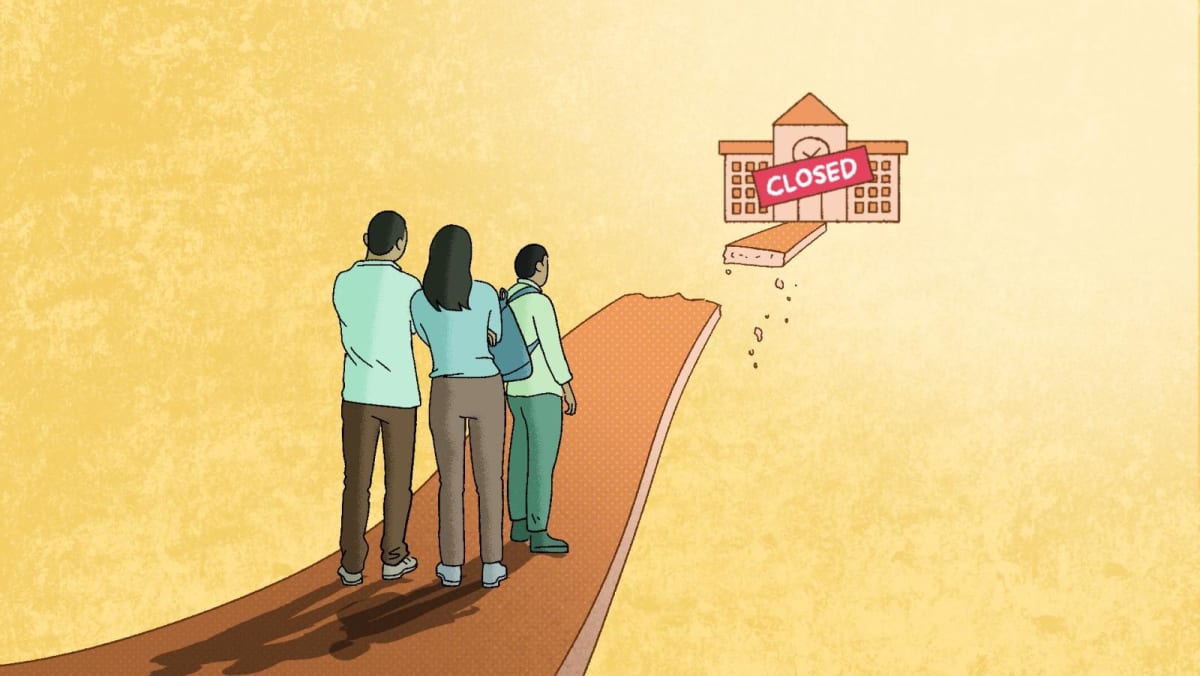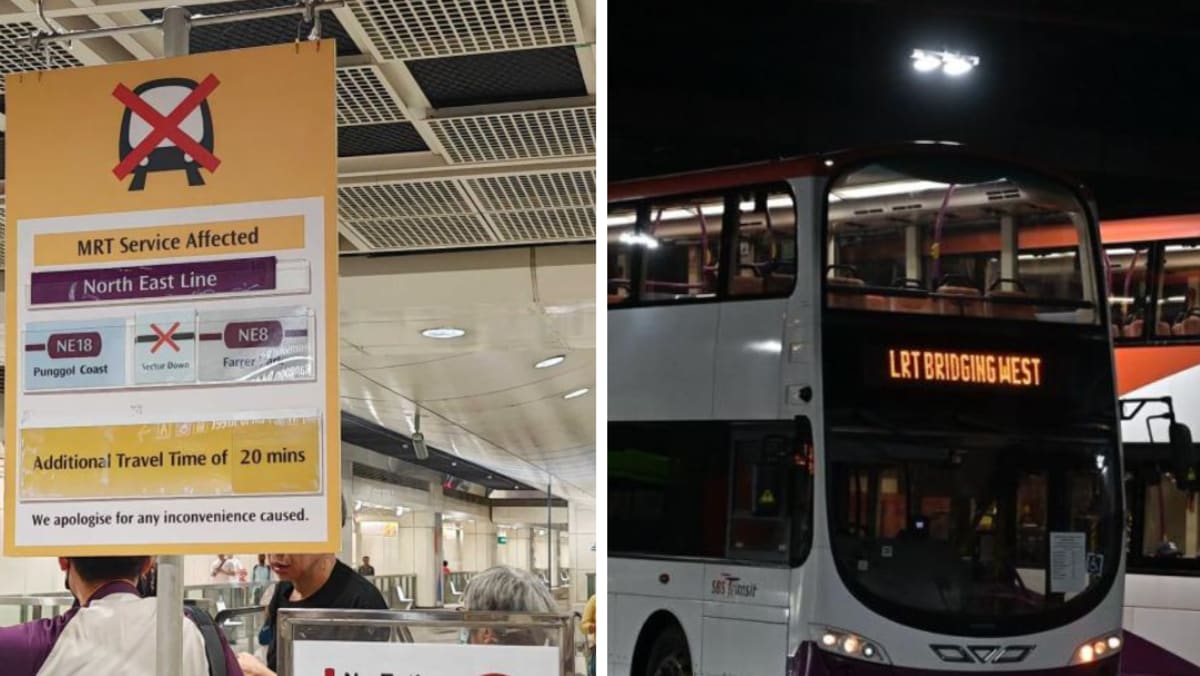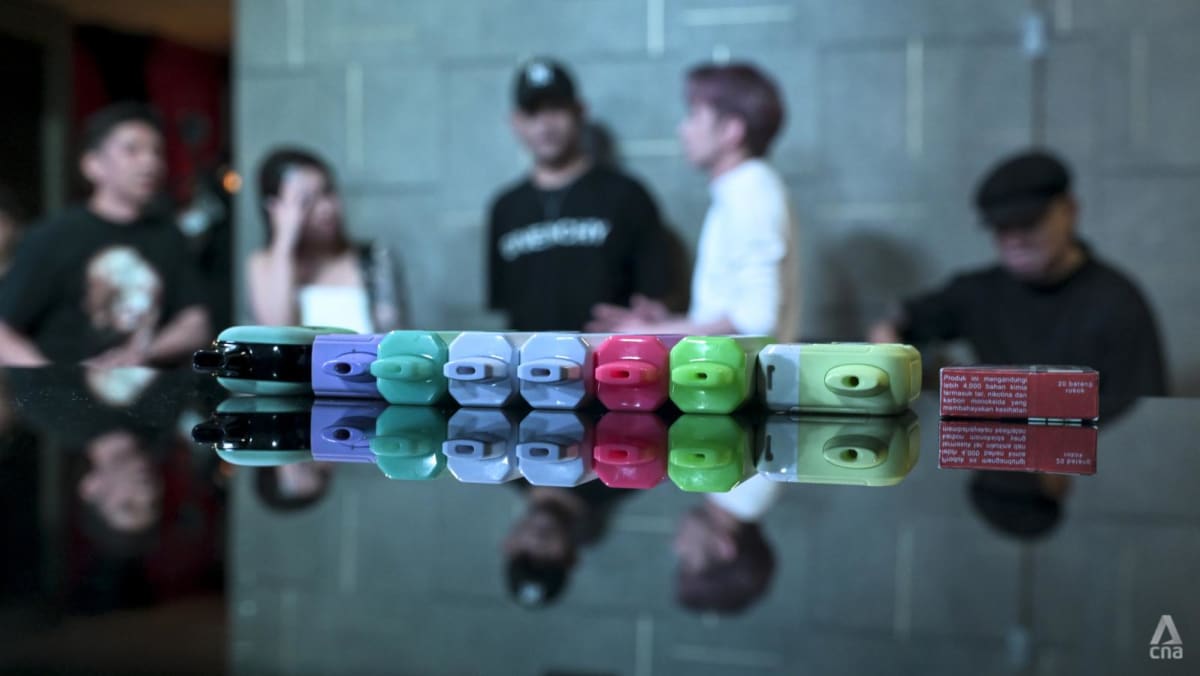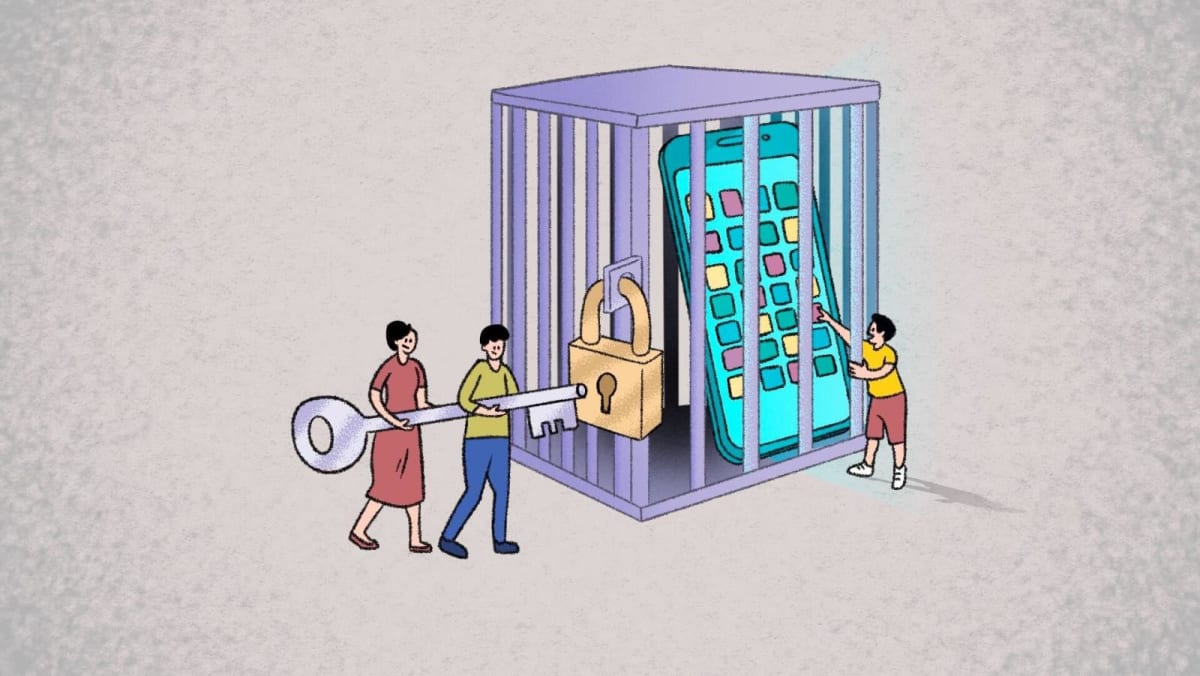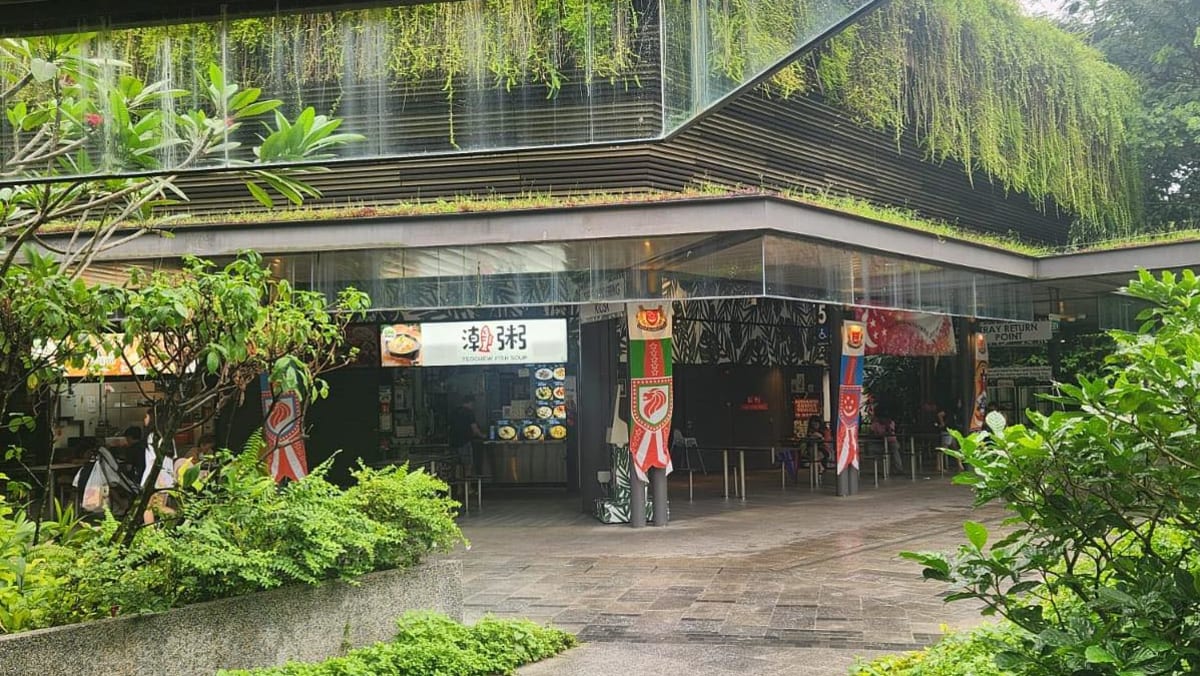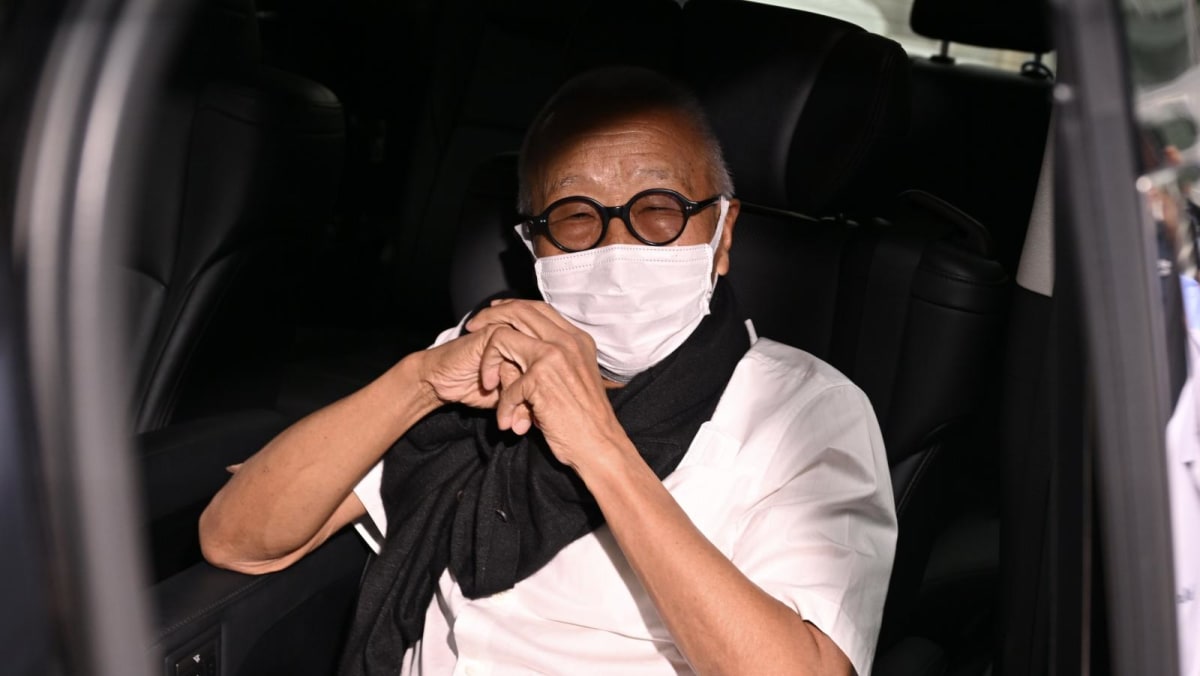SPURRED TO FULFIL EACH OTHER’S DREAMS
Things changed when the couple met at a theatre workshop in March 2023 and fell in love. Working together was like a “renaissance” for their artistic dreams since they could finally make art again, as Mr Lim put it.
This was the reason why they named their startup Rebirth Ensemble. “Rebirth” pointed to them being able to produce art again, while “Ensemble” means it is a collaborative effort. They felt that it perfectly articulates their relationship.
So far, they have completed two pieces of art, which are images of trees drawn using oil pastels on canvas. They spent about three sessions of an hour each over the span of a month to complete each artwork.
Hearing this, it struck me how drawing and writing on paper is effortless to me, but is a process that requires much planning, intention and perseverance for the couple.
When I asked why art means so much to them, Ms Yip said she believes that art is not just colours put on a canvas. She thinks that each brush stroke and colour choice has intention, tells a story and carries meaning.
Mr Lim chimed in, saying that art has always been a therapeutic medium for him. He also witnessed how his late brother, who had autism in addition to Duchenne muscular dystrophy, suddenly “blossomed” when he was exposed to fine art even though he could not communicate in words.
“For us as a differently-abled artist couple, we strongly believe that we have a very compelling and inspiring story to tell,” Mr Lim said of him and Ms Yip.
“And we want to use that story not just to inspire change or make a positive impact, but also to enable us to have a future together and leave our legacy behind.”
THEIR HOPES FOR REBIRTH ENSEMBLE
Mr Lim is the managing director of Rebirth Ensemble and Ms Yip is the lead artist. The startup rents an office space in Temasek Polytechnic at a subsidised rate.
This venture is more than just a business to them – it is the foundation on which they hope to build their careers together, a means by which they can be independent and financially self-sufficient.
“Even if I were to work in a full-time job – but I can’t because of my condition – we still won’t make enough to be able to meet our relationship goals in terms of getting married, settling down and having our own place,” Mr Lim explained.
Ms Yip said that through this startup, they hope to support themselves and potentially their parents.
Keeping a full-time job was not easy for her.
She had worked full-time in human resources for more than 10 years in three companies, but she was mostly in contract positions and found it difficult to secure a permanent role.
Recalling her first job where she worked for 3.5 years, she said that the position underwent a revamp, which meant that she had to travel more between two premises.
She explained to her manager that travelling was not straightforward for her, then asked if the job could be redesigned so that she could do more administrative and desk-bound work instead.
“Despite how much I expressed that I would like to stay, the senior management just said ‘no’. I did not feel respected because I voiced up my challenges and they thought that there was nothing up for discussion. So I really felt discouraged,” she added.
In her experience, she also felt that she was always viewed as a “lesser” worker whose efforts were not really recognised or seen.
In Mr Lim’s case, he still has a part-time job as a marketing communications assistant at Shalom Medcare, a medical transportation service for wheelchair-bound users or those with special requirements.
The company’s name is a pure coincidence – Mr Lim does not own the company or have personal ties to it.
Right now, he works from home on this part-time job. Going full-time would mean he would have to travel more frequently, which would be tough for him due to reduced stamina from his medical condition.

